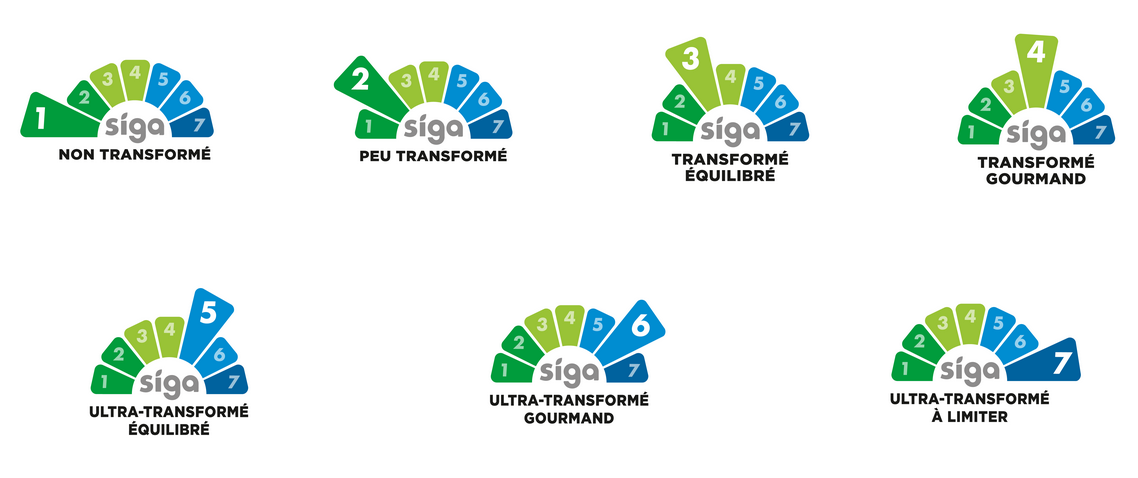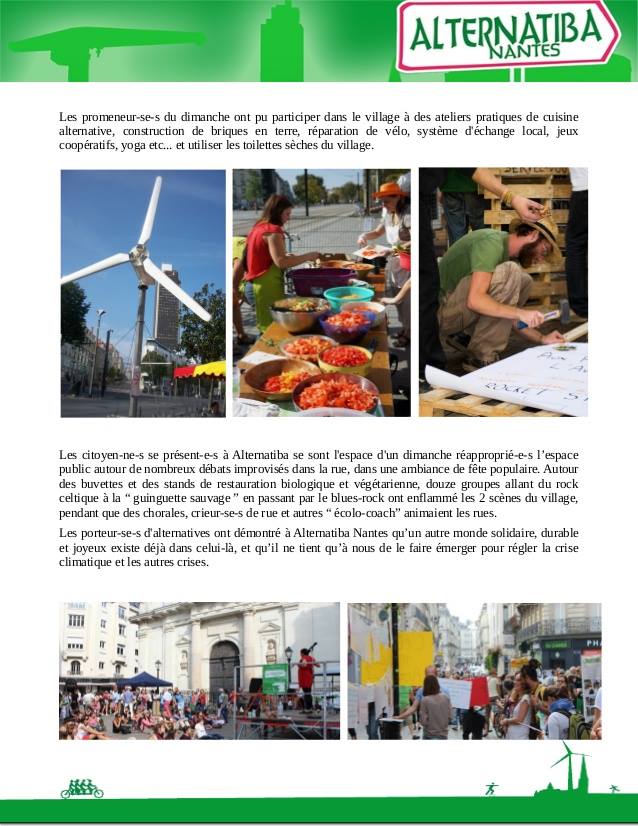Should we really be afraid of processed plant-based products?
Update on 7 April 2025: Should we abandon the term ‘ultra-processed foods’? A necessary scientific re-examination
Open letter ‘Food science and nutrition should avoid using the term “ultra-processed foods” and the “NOVA classification”’ written by two leading figures in food research:
🔹 Hannelore Daniel, Professor Emeritus of Human Nutrition Physiology at the Technical University of Munich, expert in nutritional biochemistry and metabolism.
🔹 Thomas Henle, Professor of Food Chemistry at TU Dresden, specialist in the physical and chemical transformations of food and their impact on nutritional quality.
📄 https://tud.link/ra76uk
✍️ https://forms.gle/tWfh8JpseRS9sUHi6
Estimated reading time: 5 min

Structured summary that can be shared on social media:
🌱 Artificial controversy against healthier vegetarian and vegan products
[⏱️ Estimated time to read the full article: 5 minutes]
🔥 While processed plant-based products are the target of a media witch hunt, a scientific report calls for us to move beyond our preconceptions. No, processing does not automatically mean danger. What matters is not the length of the ingredient list, but the nutritional balance. Flavoured yoghurts and processed meat are often more problematic than plant-based steaks, which are often demonised.
🧠 There is a lot of confusion surrounding the concept of food processing. Since we first started cooking food over a fire, our food has been processed. Bread, yoghurts and ready meals are not to be avoided. Even some ultra-processed foods can have a better Nutri-score than so-called ‘raw’ foods. The real criterion for harmfulness? Excess sugar, salt and fat… not the number of processing steps.
🥩 Animal products are actually more risky. According to a large study based on the Siga classification, 92% of salted meats and 88% of meat-based ready meals have a worrying health profile. Among other things, this is due to additives such as sodium nitrite, a probable carcinogen widely found in processed meats, which increases the risk of colorectal cancer.
🌾 Conversely, plant-based products contain fibre, which is valuable in preventing obesity and cancer. However, nearly 90% of French people do not consume enough fibre. By adopting more plant-based specialities, we are directly addressing one of the biggest public health issues.
💪 The obsession with animal protein is also unfounded. In the UK, we consume far too much of it: up to 2.5 times our daily requirements. A more plant-based, or even flexitarian, diet would significantly reduce premature mortality… and greenhouse gas emissions.
🧪 The debate should therefore not be about ‘natural’ versus ‘processed’ foods, but about their actual nutritional quality. Industrial plant-based substitutes are not perfect, but they are often much better than the meat products they replace. If they help us eat less meat while maintaining our taste preferences, why not give them a try?
🌭 How about firing up the barbecue this summer and grilling some plant-based sausages?
#HealthyFood #FoodTransition #PlantBasedProducts #PublicHealth #Vegan #Nutrition #Flexitarianism #Environment
Processed foods may be better for your health
Animal products are riskier than plant products
Plant products contain the fibre we lack
The major challenge of healthy eating
Just as we published a scientific report on processed plant products, we witnessed a virtually unanimous media outcry against these foods[1][2][3][4][5][6][7][8][9][10][11][12][13][14][15][16][17][18][19][20][21][22][23][24][25]. Convinced of the health, environmental and ethical benefits they offer when consumed in place of animal products, we propose to move beyond preconceptions and prioritise them.
Processed products can be better for your health
Consumers do not have a clear understanding of food classifications, particularly the distinction between processed and ultra-processed products. The former have been part of our daily diet for at least 500,000 years. Since then, cooking has remained the most common form of processing to make food easier to digest. Many common products such as bread and yoghurt are processed foods according to the Nova and Siga reference classifications. Avoiding processed foods altogether can actually be counterproductive, as diets restricted to raw and unprocessed foods are generally less diverse and less safe. Although it is accepted that higher consumption of ultra-processed products is generally more harmful, it is not uncommon to see ultra-processed products with a better Nutri-score than raw or minimally processed products. This is not inconsistent, as the harmfulness of salt, sugar or cholesterol depends more on the amount present than on the number of processing steps or ingredients in the food.
Animal products are riskier than plant products
In a scientific study published in January 2020, Sylvie Davidou and her colleagues used the Siga classification to characterise 24,932 packaged foods in French supermarkets (excluding baby foods and alcohol). The ultra-processed food category is divided into three subcategories: foods with only one ultra-processing marker and a balanced nutritional profile, foods with only one marker but an unbalanced nutritional profile, and foods with several ultra-processing markers and/or an additive with a known safety issue. The results show that vegetarian dishes are the least numerous in the third category (59%). On the contrary, although they are not the subject of particular criticism and are considered ‘healthy’, 78% of flavoured yoghurts and fromage frais are in this category. Ready meals containing animal products and salted meats, for which plant-based specialities are an alternative, account for 88% and 92% respectively in this same category. Overall, the more animal ingredients they contain, the higher the risk classification of ultra-processed products.
Furthermore, the most common risky additive is sodium nitrite. However, this preservative is widely used in processed meats and various local and traditional charcuterie products. Classified as a probable carcinogen by the National Cancer Institute, it is thought to increase the risk of colorectal cancer by 18% per 50g of additional charcuterie consumed per day. The French National Agency for Food Safety (ANSES) recommends limiting consumption to 25g per day (equivalent to a small slice of cooked ham). According to the European Food Safety Authority (EFSA), although safety levels appear to be sufficiently protective, if all dietary sources of nitrites and nitrates in a conventional diet are taken into account, the acceptable daily intake is likely to be exceeded in all age groups of the population.
Percentage of foodstuffs according to the degree of processing according to the Siga classification for six categories. A0: unprocessed, A1: minimally processed, A2: minimally processed culinary ingredients, B1: nutritionally balanced processed foods, B2: processed foods with high salt, sugar and/or fat content, C0.1: nutritionally balanced ultra-processed foods C0. 2: ultra-processed with high salt, sugar and/or fat content, C1: ultra-processed with multiple ultra-processing markers and/or a risky additive.
Plant-based products contain the fibre we need
In addition to being nitrite-free, vegetarian and vegan alternatives contain fibre. 87% of adults and 98% of children in France are deficient in fibre, even though it reduces the risk of overweight and obesity, factors involved in the development of many cancers. While the global obesity rate is 13%, in France it reaches 17%. However, fibre deficiency is also a major risk factor for colorectal cancer. This is particularly significant as it is the second leading cause of cancer death in France.
We eat too much protein
Finally, many people consume animal products on a daily basis for fear of not getting enough protein. However, the modern Western diet contains too much protein. In France, with an average of 0.83g of protein per kilo of body weight, we consume nearly twice too much for a sedentary man and 2.5 times too much for a sedentary woman. The overconsumption of animal products is so high in our countries that a study by the scientific journal British Medical Journal concluded in 2020 that adopting a flexitarian diet, corresponding to an average consumption of 300g of meat per week, would prevent 18.9% of premature deaths (while reducing greenhouse gas emissions from food by 74%). A vegan diet, meanwhile, achieves the greatest reduction in mortality and environmental impact.
The major challenge of healthy eating
We must realise the major challenge that healthy eating represents from a public health perspective. Unhealthy diets pose a greater risk of mortality than unprotected sex and alcohol, drug and tobacco consumption combined. But let’s not be mistaken: the main harmfulness of a food does not come from the length of its ingredient list or the number of processing steps it has undergone. Ultra-processed foods are harmful mainly because of their poor nutritional balance (low in fibre, high in fat, sugar and salt). However, the vast majority of major plant-based steak brands display Nutri-scores of A or B for their products. It is therefore absurd to single out these plant-based products, when they are mostly less problematic than their animal-based alternatives.
While health authorities have been telling us for decades to eat more vegetables, legumes and whole grains, processed plant-based products have the advantage of being able to replace processed animal products without disrupting our taste buds. So, during the summer, for example, instead of banning barbecues, which we know are harmful, let’s optimise their use by starting with plant-based sausages, which contain fibre and less saturated fat!
Jonathan GUÉGUEN
[1] ‘Survey: how good are vegetarian products?’, Consommation Logement Cadre de Vie, 2020
[2] Ouns Hamdi, ‘Vegetarian foods in supermarkets: the big scam’, Reporterre, 2020
[3] Ouns Hamdi, ‘For vegetarian and vegan products, the Nutri-score is no guarantee’, Reporterre, 2020
[4] Killian Bouillard, ‘Veggie steaks are not good for your health’, Reporterre, 2021
[5] Pauline Ducamp, ‘A study by the CLCV highlights the low vegetable protein content of vegetarian products’, BFMTV, 2020
[6] Nina Pareja, ‘Meat substitutes or meat-like products are not necessarily healthier’, Slate, 2021
[7] ‘Vegetarian products are mainly composed of water, says association’, 20 minutes, 2020
[8] Jérémy Joly, ‘The surprising composition of certain vegan products’, Capital, 2020
[9] ‘Vegetarian products singled out by a consumer association’, CNEWS, 2020
[10] ‘Vegetarian and vegan products: more water than plant protein’, L’info durable, 2020
[11] ‘Vegetarian products contain more water than plant protein, according to CLCV’, Le Huffington Post, 2020
[12] Eric Roussel, ‘Vegetarian products “mainly composed of water!”’, La France Agricole, 2020
[13] ‘The quality of vegetarian products scrutinised by the CLCV’, Interbev, 2020
[14] ‘6 o’clock news – Food: the composition of vegan products under scrutiny’, RTL, 2020
[15] Atlantico Editorial, ‘More than half of vegetarian products studied by an association contain water as their main ingredient’, Atlantico, 2020
[16] Pierre Emparan, ‘Too much water and too little protein in vegetarian and vegan products’, France Bleu, 2020
[17] L’Obs with AFP, ‘More water than plant-based ingredients: the composition of vegetarian dishes criticised’, L’Obs, 2020
[18] Fanette BON, ‘How good are meat alternatives?’, Ouest France, 2020
[19] La Rédaction, ‘Vegetable proteins: GEPV disputes CLCV survey’, Agro Média, 2020
[20] AFP, ‘Vegetarian products: study highlights low vegetable protein content’, L’Express, 2020
[21] Odile Plichon, ‘Vegetarian products: paying more does not guarantee better quality’, Le Parisien, 2020
[22] Editorial team, ‘A consumer association attacks vegetarian and vegan products’, Valeur Actuelle, 2020
[23] Thierry Mestayer, ‘Vegetarian products: watch out for additives!’, Le Telegramme, 2020
[24] AFP, ‘Vegetarian products: a study highlights their low vegetable protein content’, Le Point, 2020
[25] AFP, ‘Vegetarian products: a study highlights their low vegetable protein content’, Good Planet mag’, 2020




0 Comments